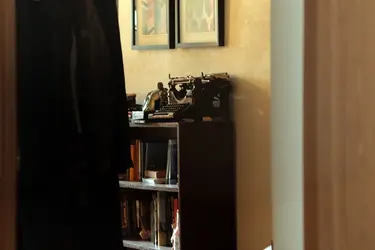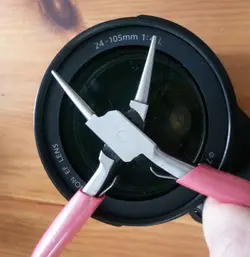Braineack
Been spending a lot of time on here!
- Joined
- Jun 17, 2013
- Messages
- 13,214
- Reaction score
- 5,613
- Location
- NoVA
- Can others edit my Photos
- Photos OK to edit
After a long day at the track I packed it up for the night and headed back off to the Villa. I wanted to bring my camera inside to review the pictures of the day, and while in complete darkness, I walked around the car to the passenger side, grabbed my camera bag and proceeded to hurl the entire contents of the bag across the concrete pad I was parked on. Apparently in my haste to call it a night, i just set the body back in and didn't zip the bag back up.
All the equipment was fine, but I got a scare when I picked up my 17-70 which is my everyday lens. It rattled like I had shattered all the glass, but luckily it was just the UV filter completely smashed. Later the next day I found I lost another on my 55-300.

One part of me is thankful I had the protect filters on the lenses, but after reviewing Friday's pictures to Saturday's, you could see an improvement in image quality with the UV filters now removed
All the equipment was fine, but I got a scare when I picked up my 17-70 which is my everyday lens. It rattled like I had shattered all the glass, but luckily it was just the UV filter completely smashed. Later the next day I found I lost another on my 55-300.

One part of me is thankful I had the protect filters on the lenses, but after reviewing Friday's pictures to Saturday's, you could see an improvement in image quality with the UV filters now removed








![[No title]](/data/xfmg/thumbnail/32/32171-96317e1f56adbfbcf5a9205247a8c2fc.jpg?1734161047)
![[No title]](/data/xfmg/thumbnail/39/39289-c5ea6a611707fdd5786347f4a67d63ae.jpg?1734173256)
![[No title]](/data/xfmg/thumbnail/39/39292-4169a355b794ae9735845c4ad45d06ff.jpg?1734173260)
![[No title]](/data/xfmg/thumbnail/34/34115-73b827c6a6db1413dcead11e4caaae69.jpg?1734164571)
![[No title]](/data/xfmg/thumbnail/39/39291-a89dc472765e04f66f617dd9acc8030d.jpg?1734173259)

![[No title]](/data/xfmg/thumbnail/39/39544-f587cf14279888b81e3b51750534ae22.jpg?1734173699)
